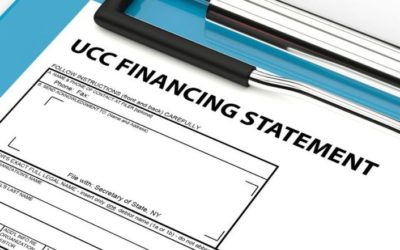MCA debt is a huge factor in determining the financial health of a business. Daily payments become burdensome to businesses experiencing a downturn in sales. The daily payments continue even when cash-flow drops. This is why the need for MCA debt relief is very real.
If you have $50,000 or more in MCA debt and are struggling to make your payments, call us. MCA debt is unsecured which gives us leverage when negotiating with MCA lenders and our company specializes in these type of negotiations. We have the knowhow and the tools to get your debt restructured and make it affordable. You will soon be cash-flow positive and making fast headway on paying down your debt.
MCA Debt Relief Lowers Payments and Consolidates MCA Loans

- We protect your funds against seizure from your lenders.
- We negotiate repayment terms that are affordable.
- The restructured plan is implemented and you begin paying your MCAs as agreed.
MCA relief works by coming to a mutual agreement between client and creditors. Loans are modified through a restructured agreement with your MCA loan lenders.
It’s in your merchant cash lender’s best interest to work with you on payment and payoff terms. Why? Because there’s is a good chance that they could receive less by filing a UCC 1 lien or activaly seeking a judgement. You would no longer be making sales if you have to close your doors. This is a lose, lose situation. Now you can’t pay your loans and you’re not making money. Both you and your MCA lenders lose in that scenario.
MCA debt relief can help a business avoid filing bankruptcy. Once you have been approved and are enrolled into the program, you need to stay current with your payments. This will allow you to become cash-flow positive and pay down your merchant debts with a payment you can afford.
MCA Loans Can Quickly Become Unmanageable
While merchant cash advance loans can be helpful, their outrageously high interest rates often make them unmanageable. A business can fall behind easily when they experience a financial downturn. Oftentimes a business will resort to getting additional financing. This temporary fix only adds more payments and interest into the mix. It’s a vicious cycle that desperate business owners continue over and over. At some point many business owners find the debt unmanageable.
You will most certainly encounter the aggressive, harassing collection techniques used within the industry upon defaulting on a merchant loan. These are only scare tactics. They are used to get payment by intimidation. Calling an MCA debt relief company can alleviate your worry if this happens to you.
Is MCA Debt Relief and Business Debt Relief the Same Thing?
Business debt relief encompasses many types of unsecured business debts. But yes, it is the same program that you enroll merchant cash advances into. MCA debt relief is just a commonly searched term by those seeking MCA relief.
Seek help sooner than later if you foresee your loans becoming unmanageable. This will help to regain control of your finances and help avoid less favorable alternatives such as business bankruptcy.
Are Debts Consolidated During Restructuring?

Whether or not your debt is consolidated will depend on the type of program you use. Your MCAs will be consolidated if you go the route of an asset based consolidation. This type of consolidation must be secured by a business owners commercial or personal property – and typically there are other steep requirements for approval of an asset based consolidation.
- The number of years in business (usually 6 or more to qualify).
- Your credit score will also be a factor in determining your eligibility.
If a business owner can get approved for an asset consolidation loan, that’s great. This will allows you to lower the interest on your MCAs and better manage the payments. You will also stay in good standing with your lenders and it won’t have a negative credit impact.
MCA Consolidation Loans Can be Tricky to Get Without Proper Credit
If an asset based MCA consolidation is out of the question then renegotiating your loan terms via a debt restructuring program may be a suitable approach.
When renegotiating, your loan companies will want to verify that you have the ability to repay your debt according to the new terms. Your MCA lenders may still be willing to renegotiate even if you are not delinquent on your payments. Like we said earlier, if your business goes under, nobody’s making money.
Do your homework before you start the negotiation process. Going into the negotiation process prepared is very vital to the outcome. The more evidence you provide to justify a restructure, the better. MCA companies are prepared to make repayment offers if necessary, but it’s your job to prove to them that it’s necessary.
Are MCA Reverse Consolidation Loans Good?
Considering only MCA loan companies offer MCA reverse consolidations, you should probably avoid them. They have a bad reputation for many pitfalls. One such pitfall is finding out that you owe for money you didn’t receive. On top of this, if you miss a single payment, you will most likely get hit upside the head with a huge penalty. Most MCA reverse consolidation lenders will mislead you by thinking that you can convert the loan into a more traditional, lower interest term loan. This is typically not the case after you’ve signed the dotted line. This type of loan can also keep you from qualifying for a legitimate loan with a good rate. Our best advice is to avoid a reverse consolidation unless you’ve exhausted all other options.
The Steep Downside of Merchant Cash Advances and Daily Payments
Cash advance loans are meant to be a growth tool for businesses. But they have their downside like most things. The drawbacks begin to appear when a business takes on more debt than their growth can keep up with.
If a company doesn’t borrow more than they can handle, they can usually manage the repayment, but the downside is still there. We will highlight three of the main reasons MCAs should be a last resort loan.
1) They Are Very Expensive
MCAs are less secure than collateral loans because they are loans against your earnings. This means that the amount you pay back over and above the amount borrowed will be higher.
Merchant cash advances use a different factoring system than interest rates, but when compared to an interest rate, they can be as high as 100%. The effect of this high rate might go unnoticed by a business that’s growing financially stronger quickly – but to a business that’s not – it can be crippling. In the case of a longer term compared to a shorter one it can also be less noticable.
2) High Payments
The more your business brings in, the higher your payment because your payment amount is based on your sales. This can be hard on cash-flow especially since payments are most often made on a daily payment schedule.
With some types of loans you can save money by paying them off early, but not with MCAs. You typically won’t receive any savings by paying and MCA off early. This is because it’s based on a percentage of sales and not based on an interest rate.
You’ll be locked into a repayment schedule that continues even if you experience a downturn in sales since most merchant lenders require automatic payments.
3) No Positive Credit Impact
MCA lenders don’t report to the credit bureaus, so even if you pay them back on time, you won’t receive any positive effects credit wise.
On the flip side, if you do go into default status with your merchant cash loans, it likewise won’t have a negative impact on your credit score. This is a plus when getting more relief from MCA debt is a necessity. Most debt relief programs have a negative impact on your credit because accounts stay in default status during the negotiation and settlement process. But with MCA debt relief, credit effect isn’t part of the equation.
Bankruptcy For Business Debt – Options and Filing
The need to file bankruptcy for business debt may seem unavoidable. However, a business filing bankruptcy is not always the best choice compared to other options. Options that can help turn your business around without the headache that comes with bankruptcy. Before...
Business Funders | List of Merchant Cash Advance Lenders
See a complete list of business funders that make business funding loans to businesses large and small. If you have found yourself overstacked with merchant loans, you can get a quote on restructuring your existing mca loans. A legal restructured term can dramatically...
Business Debt Settlement – Eliminate MCA Debt Without an Attorney
MCA Relief | Get Relief From Merchant Loans
Debt to income is a huge factor in determining a business's financial health. Daily payments become burdensome to businesses experiencing a downturn in revenue. Payments continue to be drafted even when the cash-flow drops. MCA relief is very real need for businesses...
MCA Restructuring | Lower Merchant Loan Payments
Debt to income is a huge factor in determining a business's financial health. Daily payments become burdensome to businesses experiencing a downturn in revenue. Payments continue to be drafted even when the cash-flow drops. MCA restructuring is very real need for...
Business Debt Help Options | Learn More
There is no shortage of options and programs designed to give relief from business debt. So, what are some of the main business debt help options, and how do you decide which is most fitting for your situation? There first step is to know what options are available....
What is a UCC-1 Lien and How to Reverse it
A UCC filing is what a creditor files in attempt to place a lien on the collateral of a debtor in default. These type of filings are filed with the Secretary of State and for the purpose of expressing interest in your collateral assets. UCC is an acronymn that stands...
What is a Confession of Judgment?
A confession of judgment is clause often hidden within a contract for a business loan or commercial lease. COJ clauses are common in alternative funding contracts such as merchant cash advances. By signing a confession of Judgment, you are signing away your right to...
Reverse MCA Consolidation Loan | What is it?
Business Debt Negotiation | When to Consider
Being overextended with debt is stressful. It is on your mind from the moment you wake up till the moment you fall asleep. It's an even more miserable feeling especially when you aren't sure how to resolve it or you think bankruptcy is your only option. Business debt...











